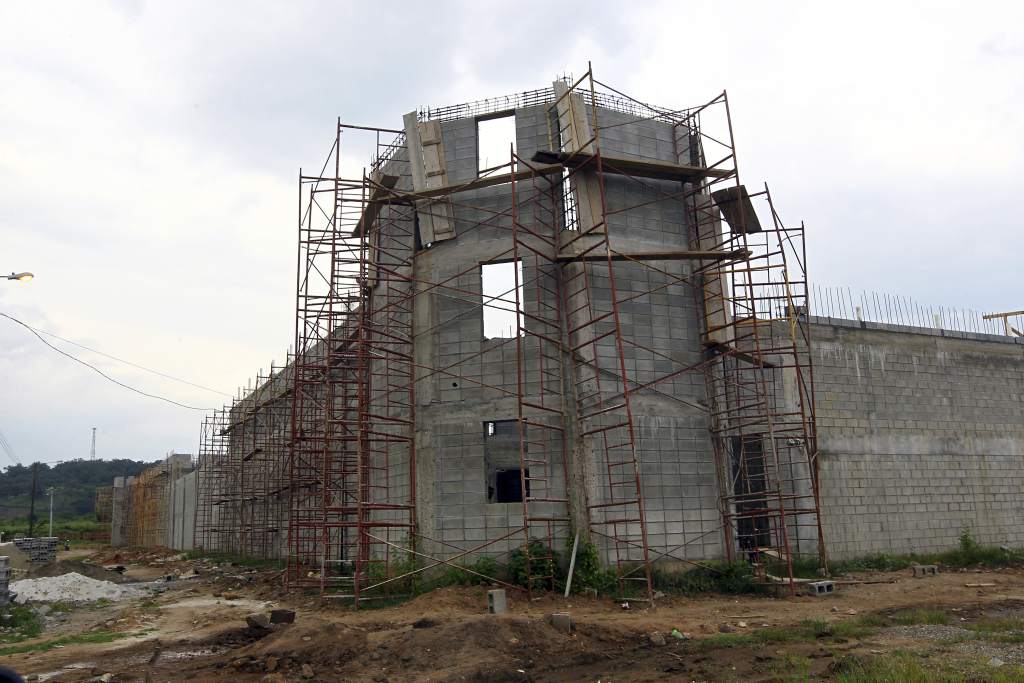Honduras is taking aggressive steps to reform its prison system, building two modern mega-prisons and pardoning petty criminals who have already served half their sentence. But with no accompanying judicial reforms, will there be any impact in Latin America’s most violent nation?
A five-part report by newspaper El Heraldo details Honduras’ plan to both modernize and reduce overcrowding in the country’s prison system – with the construction of two massive correctional facilities serving as a catalyst for the new approach.
One of the new facilities — located in central Honduras, 70 kilometers north of capital city Tegucigalpa — is under construction on seized land that previously belong to organized crime groups. The prison, expected to be finished in December, is intended to be a minimum security facility with capacity for 2,000 inmates.
Meanwhile, a medium and maximum security prison being built in the country’s northwest is expected to house 2,500 of the country’s most dangerous criminals. The cost of construction for the facility is over $20 million, which is currently 65 percent complete. Like the minimum security prison, the new facility will be a dramatic upgrade from existing prisons in the country in terms of health and security. Each cell will reportedly contain a toilet, shower, and hand-washing station, while security cameras will monitor every corner of the three-story structure.
With the addition of 4,500 new spaces for inmates, the new facilities are intended to reduce severe overcrowding in the country’s prisons. According to the Secretariat for Human Rights, Justice, Government and Decentralization, Honduran prisons are operating at close to 200 percent capacity, with just 8,625 assigned spaces for the country’s 16,331 prisoners. In the most severe case, the penitentiary in the coastal town Puerto Cortes holds over five times (226) the maximum capacity for inmates (40).
Aside from building new mega-prisons, Honduras is planning to reduce overcrowding by offering pardons to criminals convicted of minor crimes who have completed half their sentence and demonstrated good behavior. While no definite timetable has been set to begin this process, the head of the human rights secretariat Rigoberto Chang Castillo said the government expects to begin approving pardons during the administration of current president Juan Orlando Hernandez.
Honduras is also considering ways to improve the crumbling infrastructures of the country’s existing prisons. Notably, the federal government is analyzing the possibility of halving the number of prison facilities in the country, from 24 to just 12. According to Chang, the closure of 12 prisons would allow government resources to focus on repairing and modernizing the remaining facilities. Honduras’ National Penitentiary Institute plans to install electronic bracelets, metal detectors, and a digitized database in order to increase security within the prison system.
InSight Crime Analysis
Honduras’ bold strategy for prison reform could improve the human rights situation and alleviate some overcrowding in the country’s jails – in the short term. The construction of two new, modern facilities is a welcome addition, given the horrific conditions of some prisons in Honduras. Likewise, releasing petty criminals who have already served time and have demonstrated good behavior is a common-sense way to reduce overcrowding without exposing the general population to serious threat.
Improving security within the correctional facilities could also cut down on the rule of gangs within prison walls. According to El Heraldo, in recent years gangs have to a large extent taken over the very places where they are supposed to be kept under guarded supervision – although authorities claim they have already started to take back control. In just one example from early 2014, prisoners in San Pedro Sula reportedly had built an entire society within the prison, replete with its own economic system, leaders, and protocols.
SEE ALSO: Coverage of Prisons
Yet, Honduras’ efforts at prison reform could serve more as a band-aid rather than a long-term solution for improving the country’s prison system.
According to the UN Office on Drugs and Crime (UNODC) Handbook on strategies to reduce overcrowding in prisons, (pdf) the short-term benefits from new prison construction can potentially have negative effects on sustainable efforts to reduce overcrowding.
“Today it is widely accepted that increasing prison capacity does not, on its own, constitute a sustainable strategy to combat prison overcrowding… Of particular concern should be the growing evidence that the short-term relief from overcrowding offered by new construction may in fact delay discussion of the causes of overcrowding.”
Some strategies the UN handbook suggests for alleviating prison overcrowding include developing fair sentencing policies, reducing abuse of pre-trial detention, and improving criminal justice systems.
The alternative solutions set out by the UNODC would likely produce longer-lasting reductions in prison overcrowding than the current government strategy in Honduras. According to Americas Quarterly, Honduras has one of the highest rates of pre-trial detention in the Americas, at over 50 percent of the entire prison population. Meanwhile, Honduras’ inertia in reforming prohibitive drug policies as well as the “mano dura” (iron fist) security strategy implemented by President Juan Orlando Hernandez have been contributing factors in filling the country’s prisons beyond functioning capacity. Without judicial reforms addressing these issues, it is unlikely Honduras’ prison system will experience a long-term reduction in overcrowding.
Meanwhile, the closure of half of the country’s prisons would likely nullify any progress in reducing overcrowding gained from the construction of the new mega-prisons. The mere possibility this measure could be adopted is further indication of Honduras’ lack of foresight in achieving sustainable prison reform.

